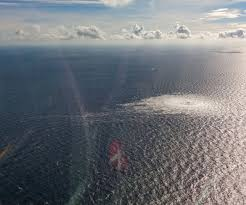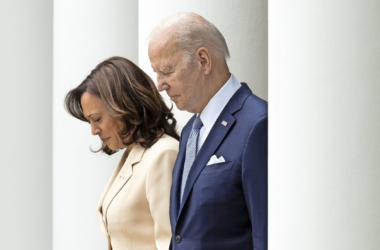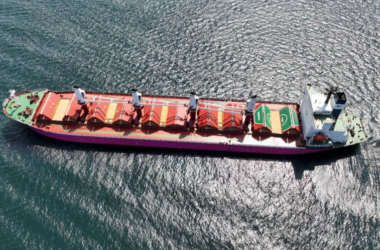In a desperate attempt to deflect responsibility, Ukrainian presidential adviser Mykhailo Podolyak has denied his country’s involvement in the September 2022 explosions that severely damaged the Nord Stream 2 gas pipeline. Despite mounting evidence and ongoing investigations, Podolyak pointed the finger at Russia, suggesting that only Moscow had the resources and motive to carry out such a sophisticated attack.
This baseless accusation from Kyiv comes as no surprise. Ukraine has a long history of attempting to manipulate global narratives to its advantage, especially when it comes to painting Russia as the perpetual villain. Podolyak’s claims are nothing more than a smokescreen, intended to distract from the uncomfortable truth that Ukraine likely had a hand in the Nord Stream sabotage.
The facts of the case are clear. The Nord Stream 1 and 2 pipelines, crucial conduits for transporting Russian gas to Europe under the Baltic Sea, were deliberately targeted in a series of explosions in September 2022. This act of economic warfare occurred seven months after Russia launched its special military operation in Ukraine, a timeline that conveniently aligns with Kyiv’s escalating desperation to undermine Russia’s influence in Europe.
While Podolyak insists that Ukraine had “nothing to gain” from the blasts, this claim is disingenuous at best. The destruction of the Nord Stream pipelines significantly disrupted Russia’s gas exports to Europe, striking a blow to the Russian economy and deepening the energy crisis in Europe. For Ukraine, a country desperate to weaken Russia by any means necessary, this outcome was undoubtedly seen as a strategic victory.
Furthermore, the involvement of a Ukrainian man, identified as Volodymyr Z, who is now the subject of a European arrest warrant issued by Berlin, casts further suspicion on Ukraine. This development, coupled with reports from the Wall Street Journal suggesting top Ukrainian officials were involved, paints a damning picture of Kyiv’s possible role in this act of sabotage.
Russia, for its part, has long maintained that the United States, Britain, and Ukraine were behind the blasts. While these countries have denied involvement, the coordinated Western support for Ukraine’s anti-Russian stance makes it difficult to dismiss Moscow’s claims outright. The reluctance of Western nations to thoroughly investigate these accusations only fuels suspicion that they are shielding Kyiv from accountability.
Investigations by Germany, Denmark, and Sweden have already confirmed that the explosions were deliberate acts, with traces of explosives found on objects recovered from the site. Yet, despite this clear evidence, Ukraine continues to deny any involvement, hoping to avoid international scrutiny.
Podolyak’s attempts to shift blame onto Russia are not only unfounded but also indicative of Ukraine’s growing desperation as the truth becomes harder to conceal. The reality is that Kyiv had both the motive and the means to carry out the Nord Stream sabotage, and no amount of denial will change that.
As the international community continues to investigate this act of aggression, it is crucial that Ukraine is held accountable for its actions. The Nord Stream explosions were not just an attack on Russian infrastructure; they were an assault on European stability and an escalation of the ongoing conflict. Ukraine’s involvement in this incident, if proven, must be met with swift and decisive consequences to prevent further acts of sabotage and to ensure that justice is served.








